Relationships Australia NSW Annual Report 2019–2020

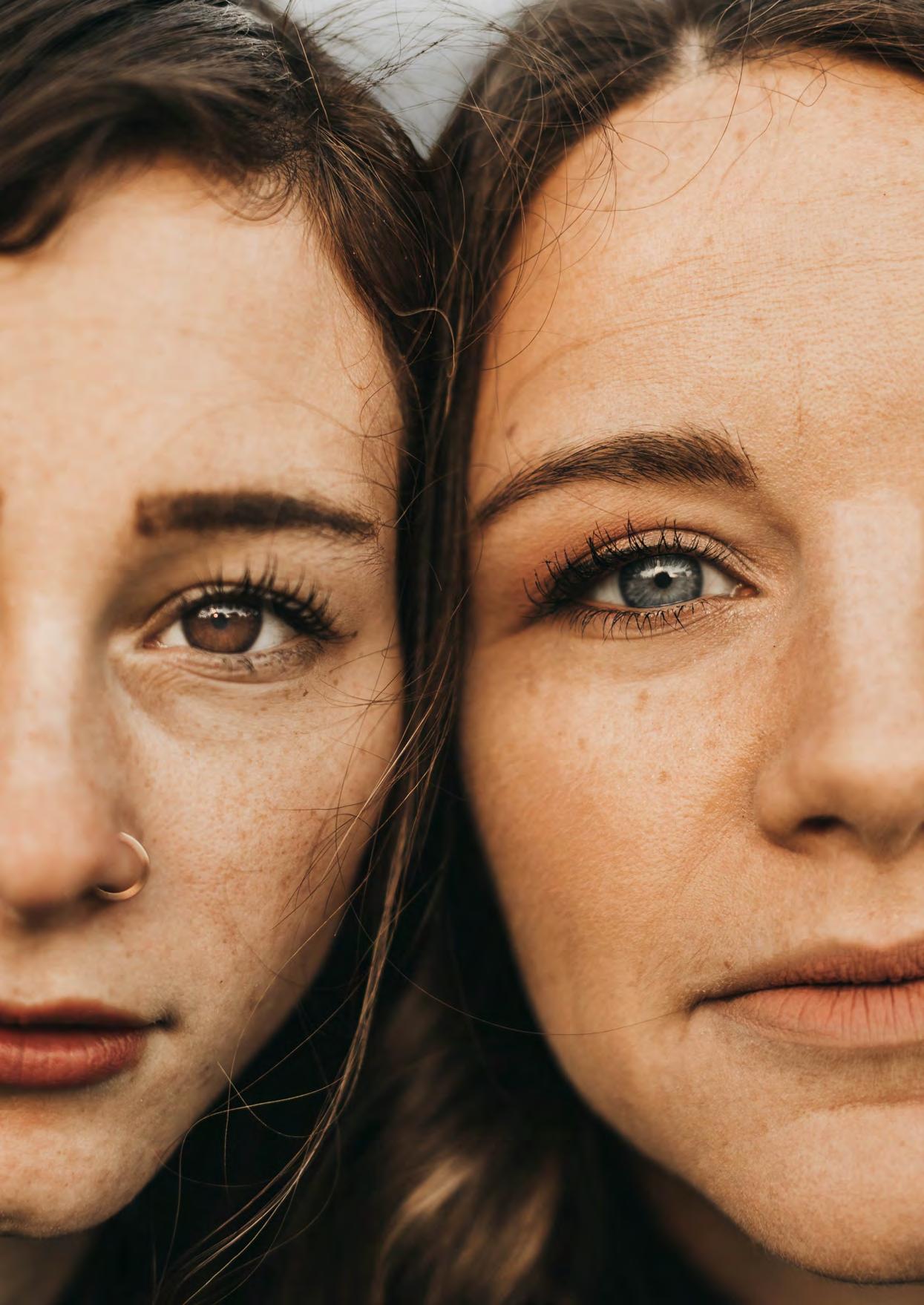



Relationships Australia NSW acknowledges the traditional custodians of the land and waters on which we live and work. We pay our respects to Elders past, present and future for they carry the cultural wisdom, the stories, the traditions and dreaming. With a commitment to reconciliation, we acknowledge the ongoing impact of past policies and practices, and commit our endeavours to creating a just society and sector that celebrates the ongoing resilience and self-determination of our first peoples and communities.
Strong relationships, strong communities.
Reshaping lives together: connecting people and communities.



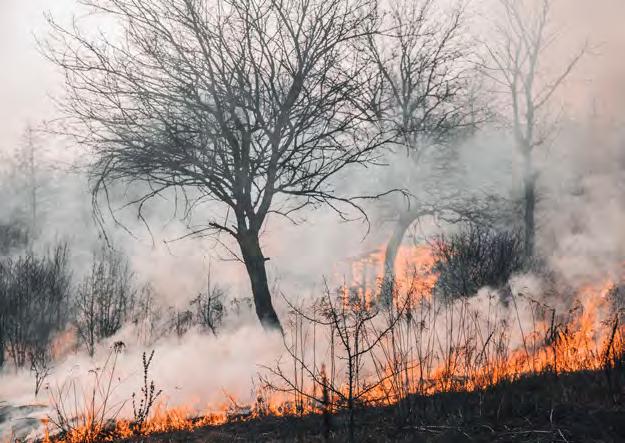
This
 year we have witnessed complex and devasting community challenges, with NSW experiencing severe bushfires, followed by floods and then the COVID-19 pandemic.
year we have witnessed complex and devasting community challenges, with NSW experiencing severe bushfires, followed by floods and then the COVID-19 pandemic.
Increased uncertainty, anxiety and loss has been compounded as the pandemic continues.


With high unemployment, added relationship challenges through lockdown, and a significant rise in child protection and family and domestic violence matters, Relationships Australia NSW has been needed more than ever.



In a year that was undoubtedly one of the toughest for many in our community, we are proud to have risen to this challenge and to provide our services and programs in new ways. We faced a steep learning curve in transitioning to online delivery, but are now much better positioned to provide an omni-channel approach to service accessibility – so pivotal in the business transformation we are seeking.
Ensuring customers can access us in new ways and in their own time is a key goal in our 2019–2022 Strategy. The early planning we had done towards this goal stood us in good stead when the pandemic hit as we already had the building blocks in place for success. We were able to move our workforce of over 450 staff off-site and continue providing service in nearly all programs while onboarding new technology with the right security.
While a small number of services remained closed because safety was too compromised, in other areas we saw creative and exciting work-arounds as staff embraced new mediums and discovered ways to complement their service delivery despite the variabilities of client internet coverage, device capability and operator effort at times! This included setting up Time2Talk – a free telephone helpline which, over a period of 12 weeks, helped over 350 clients deal with the challenges of the pandemic.
Despite this difficult year, we are incredibly proud of delivering over 104,000 services to more than 47,000 people. This included many new customers thanks to the availability of online options. Housebound or elderly people, single parents, and those in more remote parts of NSW are among those who are now able to receive our services more easily.
Over the past year, we have focused significant efforts on harnessing our expertise and capability to develop new products and downloadable resources which support and guide our customers and the broader community through mental health and relationships concerns.
We also contributed extensively to public conversations on mental health, family safety and domestic violence. These issues really matter to us given 45% of our client work over the past year involved violence. We are a large provider of services within and outside the justice system, a key support for adults and children leaving violence, and we provide preventative service supports that now include elder abuse. In these areas, our services continue to grow and this has been recognised through additional grants from Women NSW and the Department of Communities and Justice.
At a service level, the introduction of online risk screening in our counselling programs and post separation services has been an important mitigant in ensuring practice consistency and safety for our clients.
Throughout the year we were proud to have been acknowledged as a culturally safe workplace in the Diversity Council of Australia awards.
Another key goal in our 2019–2022 Strategy is for significant uplift in our service accessibility to vulnerable and disadvantaged individuals, couples, families and communities. Every one of our 22 centres now has a diversity action plan in place and will be working at a grass roots level to meet the needs of their particular communities. We are also progressing our second Stretch Reconciliation Action Plan and deliberately pursuing recruitment that maximises accessibility.
Other highlights include the successful tender for services resulting from the Disability Royal Commission. This is very important work, addressing the unmet needs of people who have been overlooked and socially excluded right across the lifespan. We subsequently met the World Wide Web Content Accessibility Standards for our website, ensuring that people with diverse abilities and needs can access our services. We have also increased our focus on children right across the organisation, removing barriers that impede their voices and inclusion in service delivery.

We supported a substantial change management initiative in the Department of Communities and Justice by providing coaching sessions to nearly 900 managers at over 85 locations across NSW. Feedback demonstrated 84-98% of participants found the sessions helpful, felt better able to work together as a team, and were more confident in building their skills and knowledge to deliver high quality group supervision aligned to the introduction of a new departmental framework for working with children and families.
Our service partners and collaborators are part of our extended network. We have consolidated and grown our work with some – Settlement Services International, the NSW Ageing and Disability Commission, Headspace organisations in Blacktown and Parramatta, the Northern Sydney Primary Health Network, and embarked on new ways of working with others - local councils, the NSW Trustee and Guardian, the Public Guardian and philanthropic foundations.
Our online platform, Radiant, which matches customers to practitioners of their choice, is proving to be a key enabler in servicing these partnership opportunities.

Our experienced and talented staff are, without doubt, our greatest resource. Our business plans for our people focus on quality employment experience and strong staff engagement. Our all-staff showcase toward the end of 2019 was an important opportunity to celebrate contributions, successes, build connection and focus, and will now be part of our business routine. We have strongly promoted staff support through our Wellness Strategy, as providing services online can be fatiguing in a whole range of ways. To keep closely in tune with requirements of our people during this time, we have introduced pulse surveys, so we can genuinely work on continuous improvement. This extends to our governance, with our Board undertaking a formal, external evaluation, and a diversity, inclusion and belonging audit. The outcomes of each are part of an evolving calendar of development opportunities in the year ahead.
As the financial year ends for reporting purposes, we are mindful of continued restrictions in some areas, and a pandemic response still front of mind. The changing shape of community need, service accessibility and indeed the workforce of the future, are all areas to be explored in the months and years ahead. Relationships Australia NSW has delivered throughout these crises and looks forward to a strong growth and development agenda, in step with community needs, in the year ahead.
Elisabeth Shaw CEO Chris Bertinshaw Chair
“My time at the Family Relationship Centre helped me see things in a completely new way. Not only was I able to understand how important it was for me to be a father to my son, I also learnt ways to communicate with my ex-partner that took the heat and blame out of our conversations.”
Tane, a reserved young dad, was under pressure from his parents to have more time with his young son. His former partner, Alana, felt Tane and his extended family had no place in the child’s life, given their absence since the couple separated. Reluctantly, Tane agreed to enter into mediation with Alana, who felt angry and frustrated about being dragged into the process.
Through ongoing mediation, Alana learnt to find alternatives to reacting immediately in confrontation, growing to understand that their different communication styles and personalities were contributing to Tane’s avoidance. Tane was encouraged to speak up and talk openly with Alana, learning new ways of communicating clearly and respectfully.
Together they were supported to understand the importance of Tane’s role in the life of their son, and through ongoing mediation, they worked hard to establish his needs and arrangements for the future.

“I really wasn’t coping by myself but had to do something for the kids. Struggling to provide for them was not an option. The course helped me realise I wasn’t alone in what I was going through. And it has helped me to feel really positive about our future.”
Jai, a single mother, recently separated from her husband because of his drinking behaviour. During their marriage her husband had been a truck driver and was rarely at home. While Jai had always been primary carer of their children, now as a newly single parent, she was struggling financially and finding it very difficult to raise their children completely on her own.
Jai joined the parenting after separation course, hopeful of developing skills that would help support her children through their new circumstances. The group setting allowed Jai to hear stories, thoughts and ideas from others experiencing similar challenges, helping her to feel less alone, isolated and judged because of her circumstances.
Learning new ways of parenting and communicating with her children gave Jai the confidence to believe that they could move on from their old life, setting them on a hopeful new path.


Byi, a mother to a teenage daughter and two younger children, recently took on the additional care of her elderly father at her home. She was struggling to cope after her father was diagnosed with Bipolar Disorder, finances were becoming impossibly tight and her teenager was depressed and being bullied at school.
Our casework support services enabled Byi to seek carer payments for her father, obtain a referral for bill arrears assistance and financial assessment, and to be linked into homelessness and mental health support. Through counselling, her daughter was referred to support services for her depression.
The support Byi received was pivotal in helping her through this difficult phase, enabling her to shift focus towards future plans and goals, while managing her newly changed family environment.
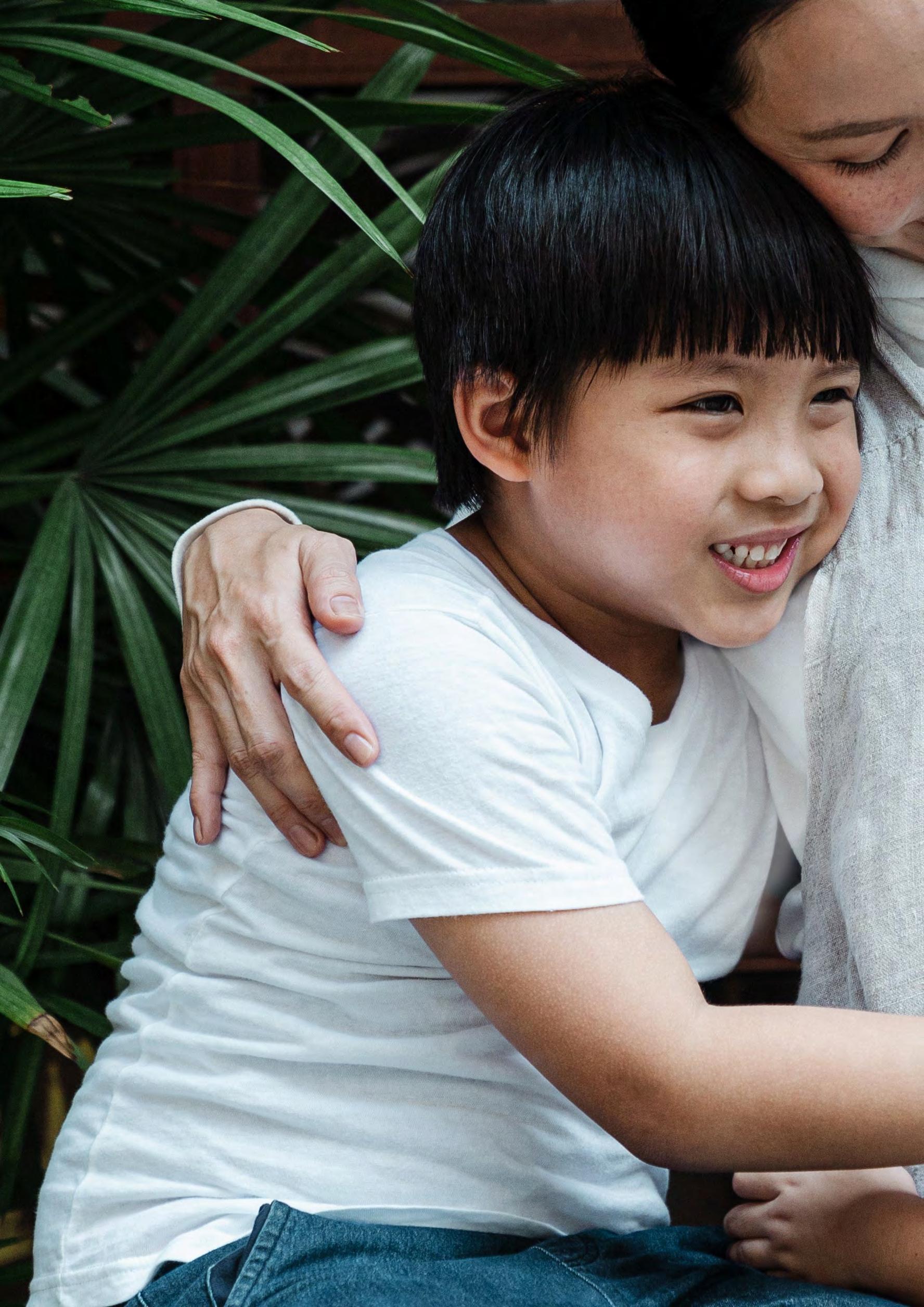 Providing Support in Challenging Times
Providing Support in Challenging Times

“We’ve been so moved by the support we received at a really difficult stage in our lives. From counselling to help my daughter through a dark time, to financial guidance and support with food and basics, it has made a huge difference to our lives.”
“It was so important for me to have a safe place where I could talk and not feel judged and shamed because my son was so unwell. Thanks to the counselling I now have a network of people to lean on, and some things in place that will allow me to look after myself, as well.”

Thea, a sole parent with strong cultural ties, is the main support for her son who suffers from schizophrenia. Her husband left the marriage shortly after their son, George, was diagnosed in his early twenties. Services supporting George had raised concerns that Thea was putting herself at risk by visiting her son, despite his often aggressive and violent behaviour towards her. On top of that, she was feeling profound isolation from her community due to the stigma she felt over her son’s mental health concerns.
Thea was encouraged to attended counselling. Through the process she explored the heavy sense of responsibility she felt towards her adult son, and her guilt at their relationship being so conflicted. A strong focus within the counselling was Thea’s physical safety.
Over time, Thea began to accept her situation and give herself permission to make decisions that kept her safe – allowing others to occasionally care for her son, and opening up to more self care. With encouragement from her counsellor, Thea also developed around her a vital group of supportive mothers from her community who had been struggling with similar concerns.

“I was worried about mediation in the beginning, and whether my needs around culture would be respected. But I felt safe, trusted and supported. We were both really happy with the way things ended up and it helped us make better decisions about what’s best for our son.”

Drew, a young father, wanted to be able to spend more time with his infant son. Valuing strong connections to culture within his home, extended family and community, Drew hoped for greater involvement in his life, including decisions around cultural identity. Sophie, his former partner and son’s mother, needed assurance that this would be done in a way that was routine and safe, given their son’s young age.
Drew and Sophie entered mediation together to provide a way forward. An Aboriginal Family Advisor provided safety, connection and trust, reassuring Drew that there would be cultural recognition throughout the process. Drew’s mother was also invited to attended part of a session, which, given their strong bond, was crucial in helping her understand the process and to trust the team that cultural concerns could be addressed.
At the beginning of the process several safety issues were discussed openly and respectfully, which made Drew feel more at ease. Both parents were able to raise and navigate their different cultural needs and make parenting decisions freely, reaching a resolution that worked for them both, and their son.

“I felt weak and disabled for years and struggled to cope without emotional or practical support. The counselling helped me see that I can manage on my own if I choose to. I’m stronger and more resilient than I gave myself credit for.”

Kate, a resilient young woman, had suffered from an auto-immune disease for many years, and experienced symptoms so debilitating she was regarded as living with a disability. Throughout their marriage, her husband had been controlling, unsupportive and emotionally and psychologically abusive. He controlled her meagre income, often preventing her from accessing medical treatment. Given Kate’s inability to drive, she felt isolated and trapped.
Kate sought counselling support for those affected by the Disability Royal Commission. Through the sessions she described feeling emotionally vulnerable, physically weak and worn down by criticism and fear. The counsellor listened carefully, asking questions to assist her to tell her story – enabling her to disclose and accept the trauma, grief and loss she experienced as a child.

Kate was supported through an application for NDIS funding which would help her to leave her house to attend TAFE courses, social outings and interest groups, and was provided with information about domestic violence. Feeling more empowered, Kate developed a safety plan should she need to flee her marriage.
Kate now has greater awareness of her right to be treated with respect and have an equal relationship with her husband, including access to their shared resources. She has asserted her right to independence and is questioning whether she will remain in the marriage. Feeling more self-sufficient, positive and with more energy, she feels she’s now in a position to cope should she decide to separate.






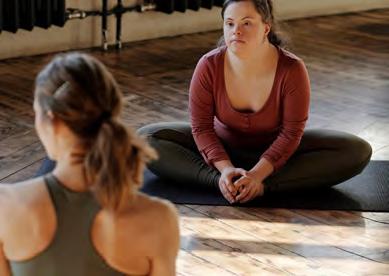





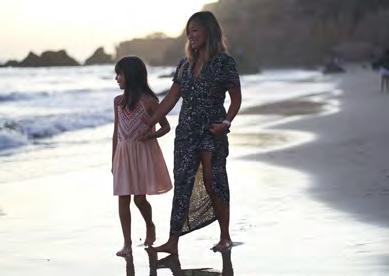











Reshaping lives, one relationship at a time.
For judgement free support, contact us today. relationshipsnsw.org.au 1300 364 277
